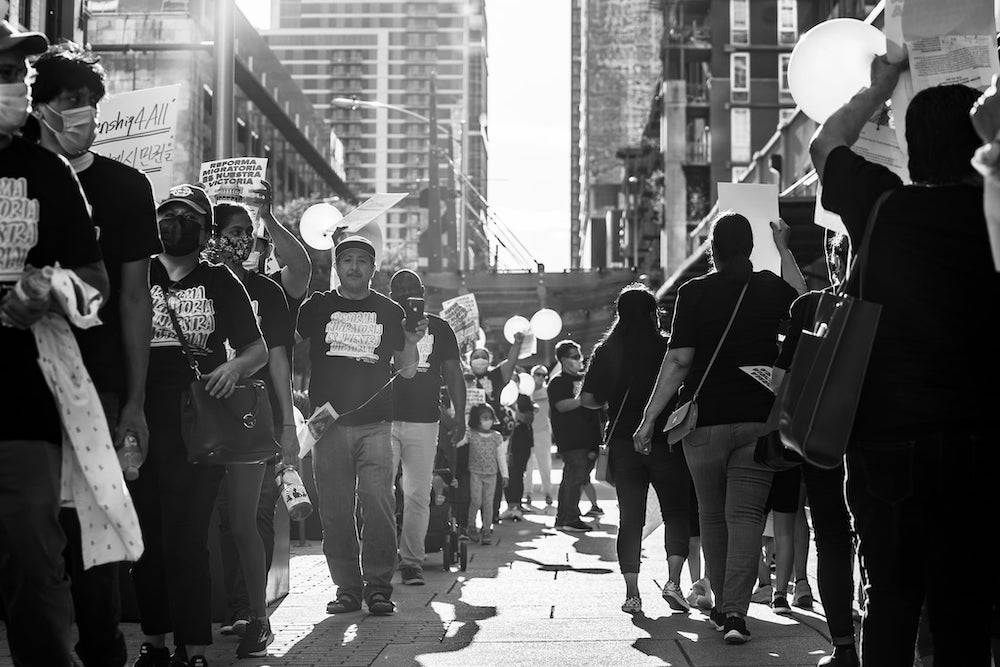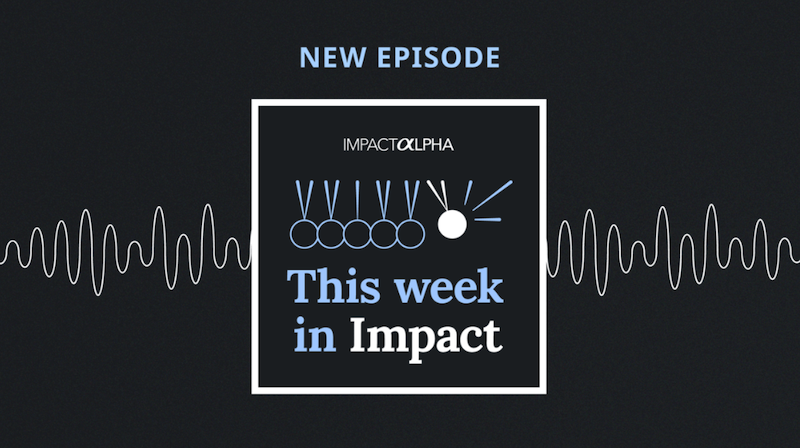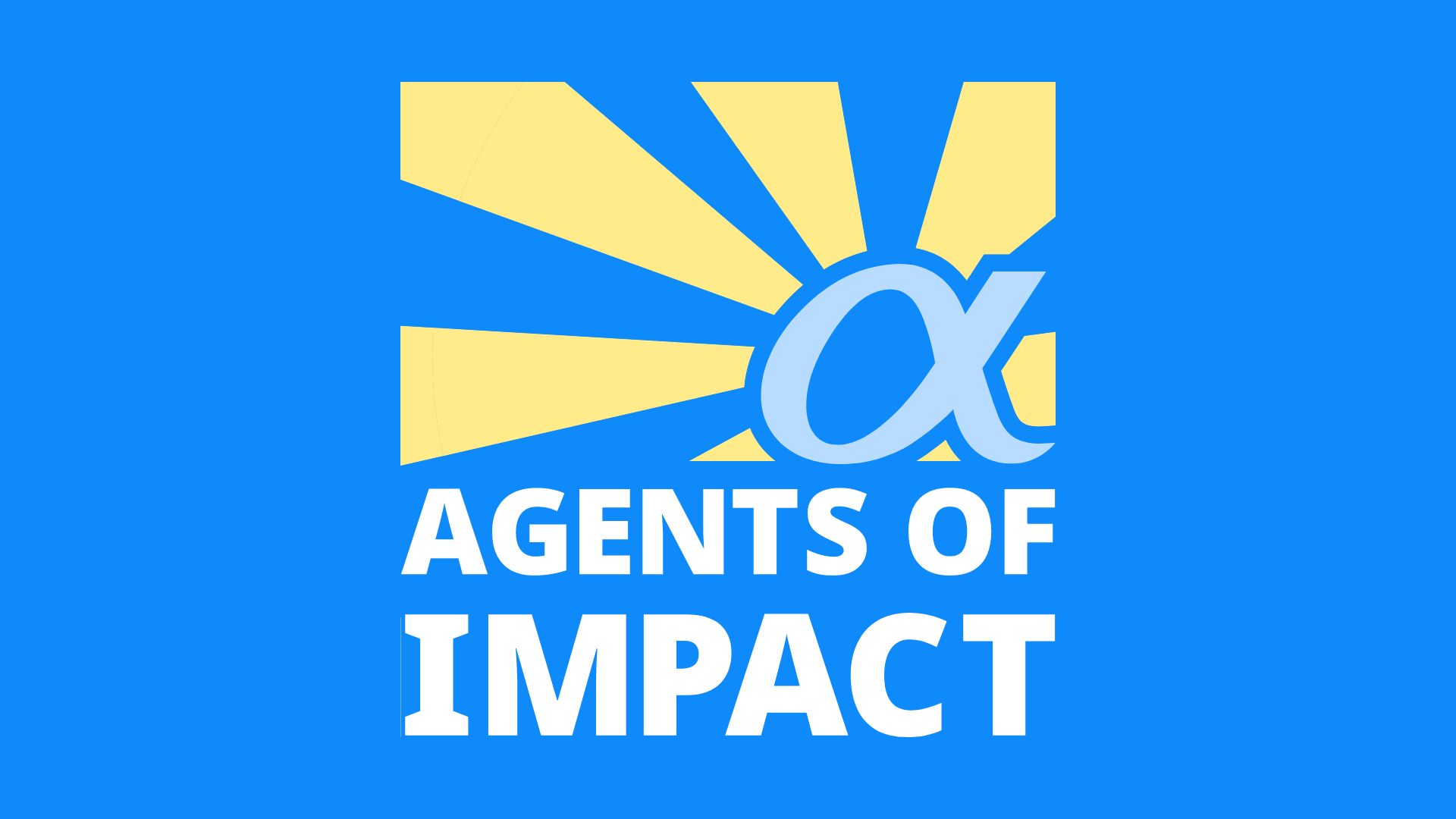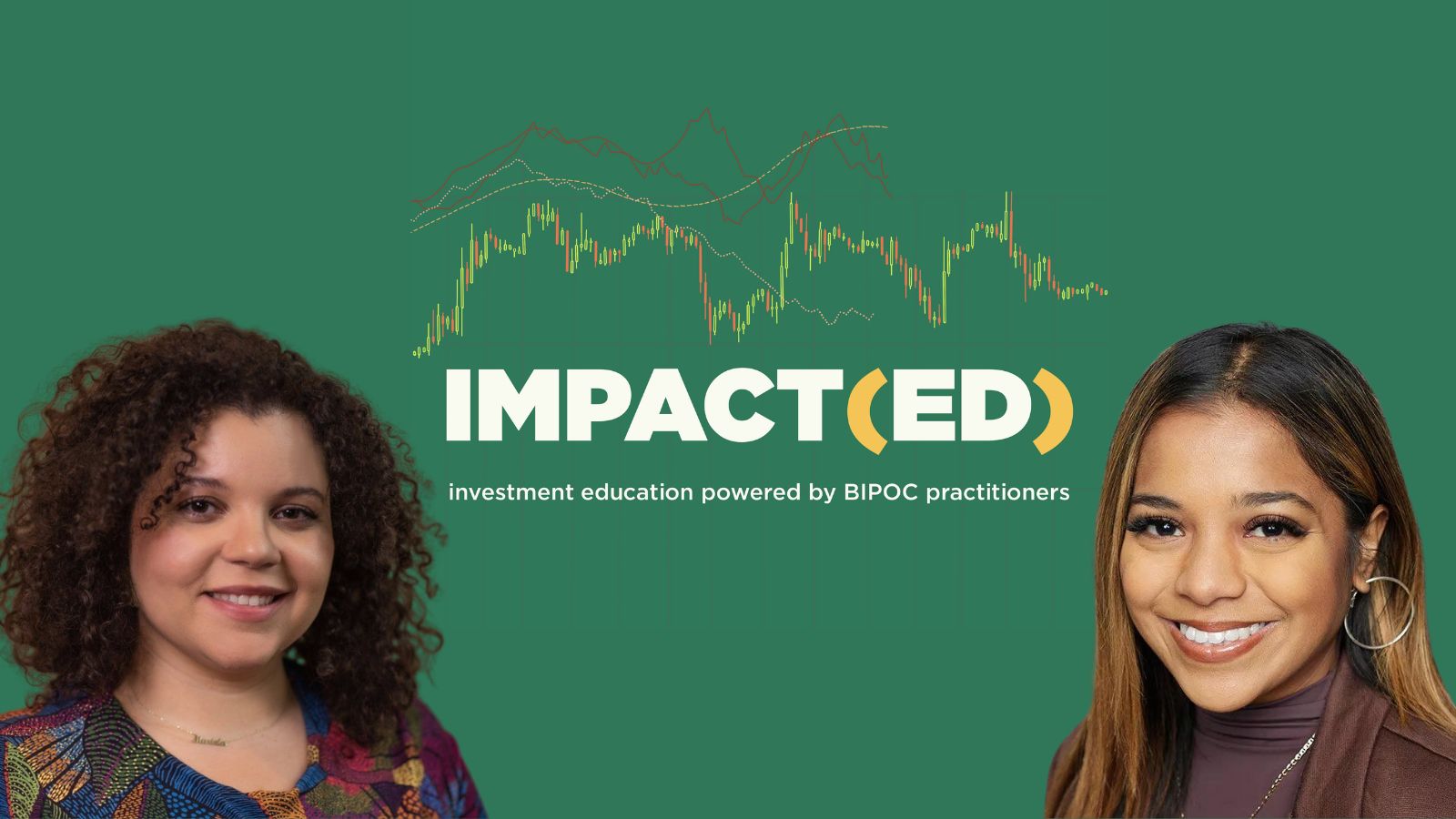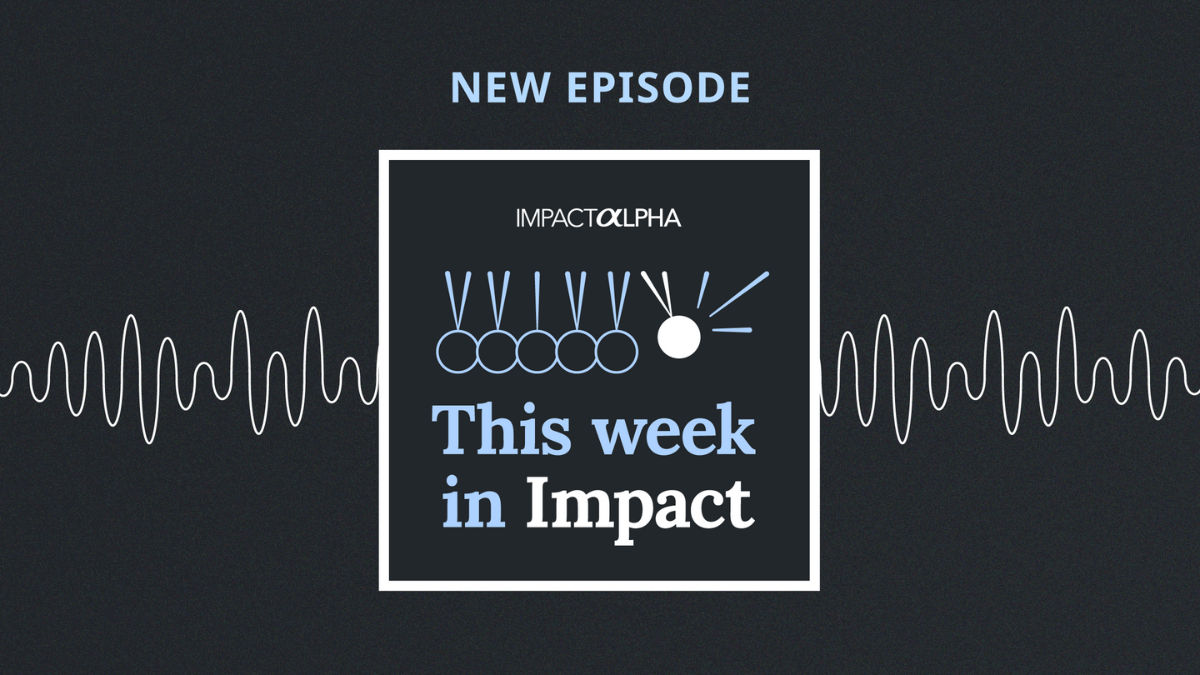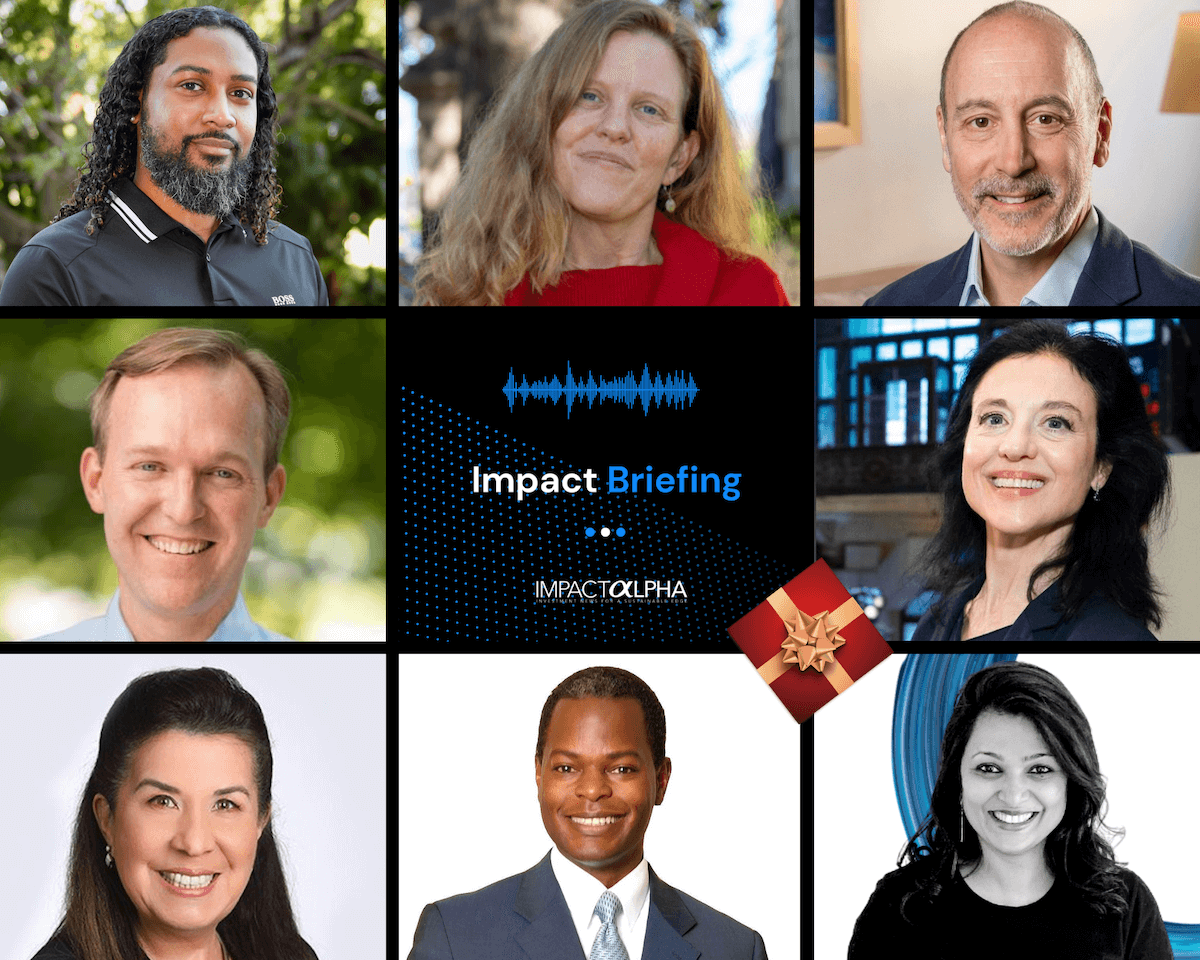ImpactAlpha, Nov. 4, 2021 – It’s one of the paradoxes of the pandemic era. Across the U.S., more than 10 million jobs are unfilled at the same time that nearly eight million people remain unemployed.
“I would call it a market failure,” Rachel Korberg, executive director of the Families and Workers Fund, says on the latest Agents of Impact podcast. “It’s not that there aren’t enough people who want to work. It’s that there aren’t enough good quality jobs that people really want to go back to and have trust in.”
The Families and Workers Fund launched last month with $51 million as a five-year philanthropic collaborative of nearly two dozen funders, co-chaired by Darren Walker of the Ford Foundation and Eric Braverman of Schmidt Futures. The collaborative builds on a $10 million emergency fund that was quickly established in the spring of 2020 and helped provide cash relief to more than 200,000 workers and families as the pandemic caused a wave of layoffs and other disruptions.
“This is a crisis. But this is also a once in a generation opportunity for change,” said Korberg, who had been a program officer at Ford. “It seemed like philanthropy really needed to serve and be a place to support innovation and leadership on a more equitable recovery.”
The Families and Workers Fund’s two priorities are the modernization of antiquated public-benefits systems, particularly unemployment insurance, and the promotion of high-quality jobs that provide economic security and mobility through decent wages, benefits, training and working conditions.
The fund found, for example, that in an effort to combat fraud many unemployment insurance systems automatically disqualify applications from people with two-letter last names. That creates obstacles, especially for Asian-American families. Other restrictions flag multiple claimants at the same address, excluding many people in homeless shelters, group care, and multi-generational housing.
“So people who already are going to be experiencing the most vulnerability are facing these extraordinary barriers,” Korberg said.
The fund supported New America to develop a playbook for states seeking to fix their unemployment insurance systems and is building a network of states pursuing innovations in public benefits technology. One grant is helping a non-profit in Alabama deliver insurance to gig workers. The American Rescue Plan, passed in March, allocated $2 billion to upgrading public-benefits systems.
The surge in public spending creates an opportunity to use government purchasing power to improve job-quality more broadly. “Whether government is doing contracts around roads and bridges or child care or disaster response,” she said, “there’s a huge opportunity there to make sure that those jobs pay a living wage, that they offer affordable and accessible benefits, that they provide safety and security to the people who are in them.”
As an example, Better Builder, a program of the Workers Defense Project in Texas, works with city governments to speed permit approvals for builders who meet standards for fair pay, job safety and hiring practices. “It solves a problem for government,” Korberg says. “It solves a problem for workers. And it solves a problem for business because it’s money when you’re waiting for permits and your zoning application to be reviewed.”
Korberg said the pandemic paradox of continued high unemployment and labor shortages casts a new light on concerns about job losses driven by automation as well.
“If we went back and looked at the news headlines over the last few years, it really seemed like there was a robot apocalypse right about to happen, that we were about to lose all of our jobs,” Korberg said. “And now the headlines are all about employers not being able to hire and this labor shortage. So it does feel like those of us who were in the future of work space – and I include myself – got something really big wrong here.”
“I think if we had listened to what was really most concerning to folks making $15, an hour or less, I think we would have heard a lot about not being able to make ends meet with the pay that you’re getting, not being able to take sick days when your parent or your kid is sick and, frankly, not always feeling that you have the respect that you deserve on the job.
“And I think if we had been really centering what they were saying, this whole conversation around the future of work might have played out a lot differently.”
Catch up on all of ImpactAlpha’s podcasts, including Agents of Impact, the weekly Impact Briefing and The Reconstruction.

